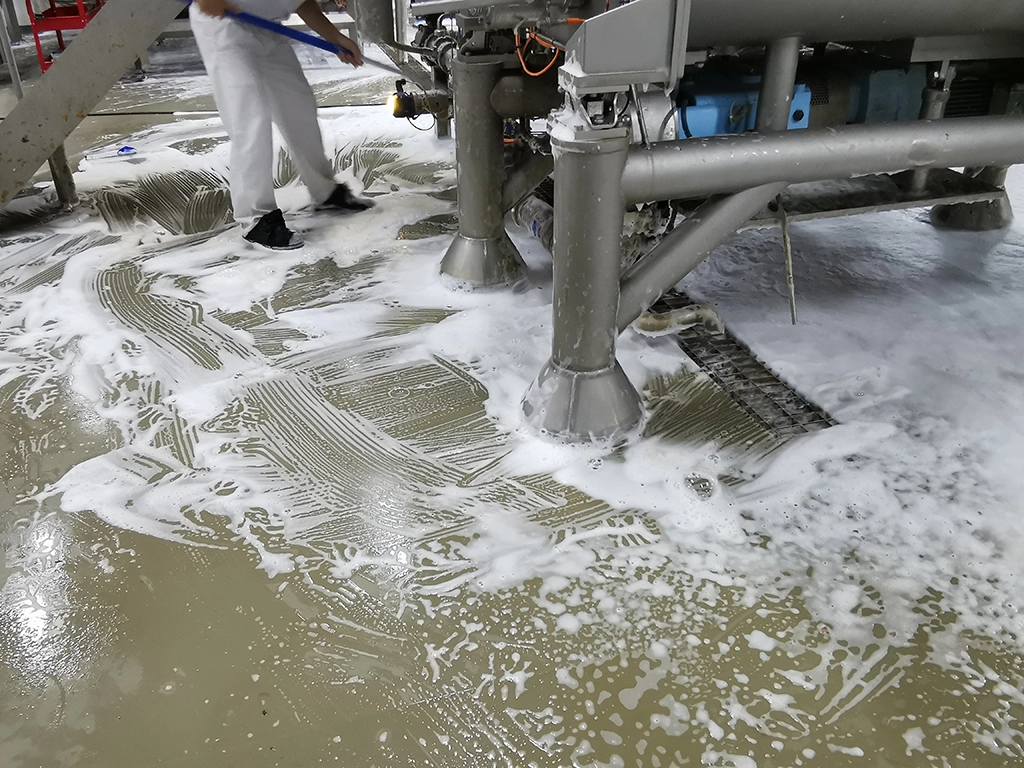
What Are Food Safety Software Systems and How Do They Work?
Food Safety Software Systems and Food Safety Management Systems (FSMS) are digital platforms designed to streamline food safety compliance and quality control processes. These systems transform traditional paper-based methods into efficient digital solutions, enabling businesses to maintain consistent food safety standards.
The core functionalities of these systems include:
- Automated Documentation Management: Digital storage and organisation of safety records, certificates, and compliance documents
- Real-Time Monitoring: Continuous tracking of critical control points, temperatures, and safety parameters
- Audit Management: Scheduling, conducting, and tracking internal and external audits
- Customisable Checklists: Digital forms and templates for routine inspections and safety checks
These systems work by collecting data through:
- Mobile devices and sensors
- Internet-connected hardware
- Integrated monitoring equipment
The collected information feeds into a centralised database, creating a comprehensive food safety management ecosystem. Users can access real-time reports, set automated alerts, and maintain detailed compliance records through secure cloud-based platforms like Squizify.
This digital approach reduces human error, saves time, and ensures consistent adherence to food safety software systems protocols across operations.

Why Are Food Safety Software Systems Critical for Meeting Regulatory Requirements?
Food businesses face increasingly complex regulatory requirements across different jurisdictions. The FDA’s Food Safety Modernization Act (FSMA), ISO 22000 standards, and regional food safety regulations demand strict adherence to specific protocols and documentation practices.
Food safety software systems provide essential tools to navigate these regulatory frameworks:
- Automated Compliance Tracking: Systems monitor real-time adherence to FDA guidelines, ISO standards, and HACCP principles
- Digital Documentation: Creates audit-ready records that satisfy regulatory requirements for traceability
- Standardised Processes: Ensures consistent product quality through automated workflows and standardised procedures
The integration of HACCP principles within these systems helps food businesses:
Read more at: Top Food Safety Management Software Solutions for 2025
- Identify critical control points
- Monitor temperature controls
- Track corrective actions
- Document verification procedures
These systems maintain detailed records of every step in the food production process, from ingredient sourcing to final product distribution. This comprehensive tracking capability proves invaluable during regulatory inspections and audits, demonstrating your commitment to food safety compliance.
The software’s ability to adapt to changing regulations ensures your business stays compliant with current standards while preparing for future regulatory updates.
How Do These Systems Enhance Operational Efficiency While Ensuring Compliance?
Food safety software systems are changing the way we operate on a daily basis by allowing us to manage all our data in one place. These platforms provide a centralised system for overseeing every aspect of our food business – from purchasing and storage to preparation and distribution. This means we no longer have separate databases for each area, and we can cut down on the amount of paperwork we need to do manually.
Time and Cost Savings through Automation
One of the biggest advantages of these software systems is their ability to automate certain tasks. This not only saves us time but also reduces costs associated with labour and errors. Here are some examples of how automation benefits us:
- Automated scheduling: Food safety checks and maintenance tasks can now be scheduled automatically, ensuring that nothing falls through the cracks.
- Real-time alerts: We receive immediate notifications if there are any temperature breaches or if stock has expired, allowing us to take prompt action.
- Digital documentation: Instead of relying on physical records, we now use digital documentation which is more efficient and easier to access.
- Streamlined supplier management: Compliance verification for suppliers is now done automatically, saving us time and effort in the process.
Collaboration Made Easy with SaaS
Another key feature of these software systems is their ability to facilitate collaboration among different teams and locations. Being a Software as a Service (SaaS) platform means that our staff can access important information anytime, anywhere, as long as they have an internet connection. This supports: Read more about collaboration on https://learn.hms.harvard.edu/insights/all-insights/promoting-collaborative-and-teamwork-competency-medical-students
- Instant communication between kitchen staff and management
- Remote monitoring of multiple facilities
- Quick response to potential compliance issues
- Real-time visibility of operational metrics
By integrating all these features into one system, we have created a strong framework that helps us stay compliant while also improving our operations. Our teams now spend less time on administrative tasks and can dedicate more time towards ensuring food safety and providing excellent service.
What Specific Features Make Food Safety Software a Comprehensive Compliance Solution?
Food safety software systems offer robust features designed to streamline compliance processes. The cornerstone of these systems lies in their tailor-made checklists, allowing businesses to create customised inspection protocols aligned with specific regulatory requirements.
Key Features of Food Safety Software
- Digital audit scheduling with automated reminders
- Real-time monitoring dashboards for instant compliance tracking
- Customisable inspection templates adaptable to different operational needs
- Document control systems for maintaining up-to-date procedures
- Automated corrective action tracking to ensure swift resolution of non-compliance issues
These systems enable users to set up automated inspection schedules, track completion rates, and generate detailed reports. The digital nature of these tools eliminates paper-based errors while providing instant access to historical compliance data. Built-in validation checks help ensure accuracy and completeness of all inspections, creating a reliable audit trail for regulatory purposes.

How Does Food Safety Software Support Proactive Risk Management and Incident Prevention?
Food safety software systems excel at proactive risk management through real-time hazard analysis and critical control point (HACCP) monitoring. These systems track potential risks at every stage of food handling, from receiving raw materials to final product distribution.
Key risk mitigation capabilities include:
- Automated alerts for temperature deviations and other critical parameters
- Supply chain visibility to identify contamination risks early
- Predictive analytics to spot emerging safety trends
- Digital HACCP compliance tools for consistent monitoring
- Instant notification system for immediate corrective actions
The software’s ability to analyse historical data helps identify patterns and potential risk areas before they escalate into safety incidents. This data-driven approach enables food businesses to implement preventive measures rather than reactive solutions.
Which Industries Benefit Most from Food Safety Software Systems?
Food safety software systems deliver targeted solutions across multiple sectors, each with unique compliance requirements:
1. Healthcare Facilities
- Patient dietary safety management
- Allergen control protocols
- Nutritional compliance tracking
- Temperature monitoring for medical food storage
2. Hospitality Sector
- Restaurant chain standardisation
- Hotel food service compliance
- Event catering safety protocols
- Bar and beverage management
3. Additional Key Industries
- Aged care facilities – specialised dietary requirements
- Supermarket chains – fresh food handling
- Manufacturing plants – production line safety
- Child care centres – allergen management
- Fuel sites – convenience food safety
Each industry receives customised implementations addressing specific challenges. Healthcare facilities focus on strict contamination prevention, while hospitality businesses prioritise high-volume service compliance. Manufacturing operations benefit from automated production line monitoring, and retail establishments gain streamlined inventory management. Click here to find more about contamination.
The software adapts to varying regulatory frameworks, from NHS guidelines in healthcare to FSA requirements in retail. This flexibility allows businesses to maintain compliance while optimising their unique operational workflows.
How Do Customization and Customer Support Enhance the Effectiveness of These Software Solutions?
Food safety software customisation directly impacts your compliance success. Each business operates uniquely, requiring specific configurations to match their processes and regulatory requirements.
Personalised discovery calls help identify your exact needs:
- Operational workflows tailored to your business structure
- Custom checklists aligned with your compliance standards
- Specific reporting formats matching your audit requirements
The onboarding process includes comprehensive demo sessions where you’ll:
- Learn system functionalities specific to your operations
- Configure user permissions and access levels
- Set up automated alerts and notifications
24/7 live chat support ensures continuous system effectiveness by:
- Providing instant troubleshooting assistance
- Offering guidance on new feature implementations
- Supporting real-time compliance query resolution
Your software solution grows with your business through regular updates and adjustments based on user feedback and changing regulatory requirements. This adaptability ensures your compliance measures stay current and effective.
What Are the Long-Term Benefits of Implementing Food Safety Software Systems?
Food safety software systems deliver substantial long-term value through measurable improvements in public health protection and business performance. These systems create a robust foundation for:
1. Reduced Food Safety Incidents
- Minimised risk of foodborne illnesses
- Decreased product recalls
- Enhanced consumer protection protocols
2. Strengthened Brand Value
- Built consumer trust through consistent quality
- Demonstrated commitment to safety standards
- Established reputation as an industry leader
3. Data-Driven Operations
- Real-time analytics for quick decision making
- Comprehensive compliance tracking
- Predictive maintenance capabilities
The implementation of food safety software transforms raw data into actionable insights, enabling businesses to maintain the highest safety standards. Companies using these systems report significant reductions in compliance-related issues and enhanced operational efficiency. This proactive approach to food safety management creates a sustainable competitive advantage while protecting both public health and brand reputation.




